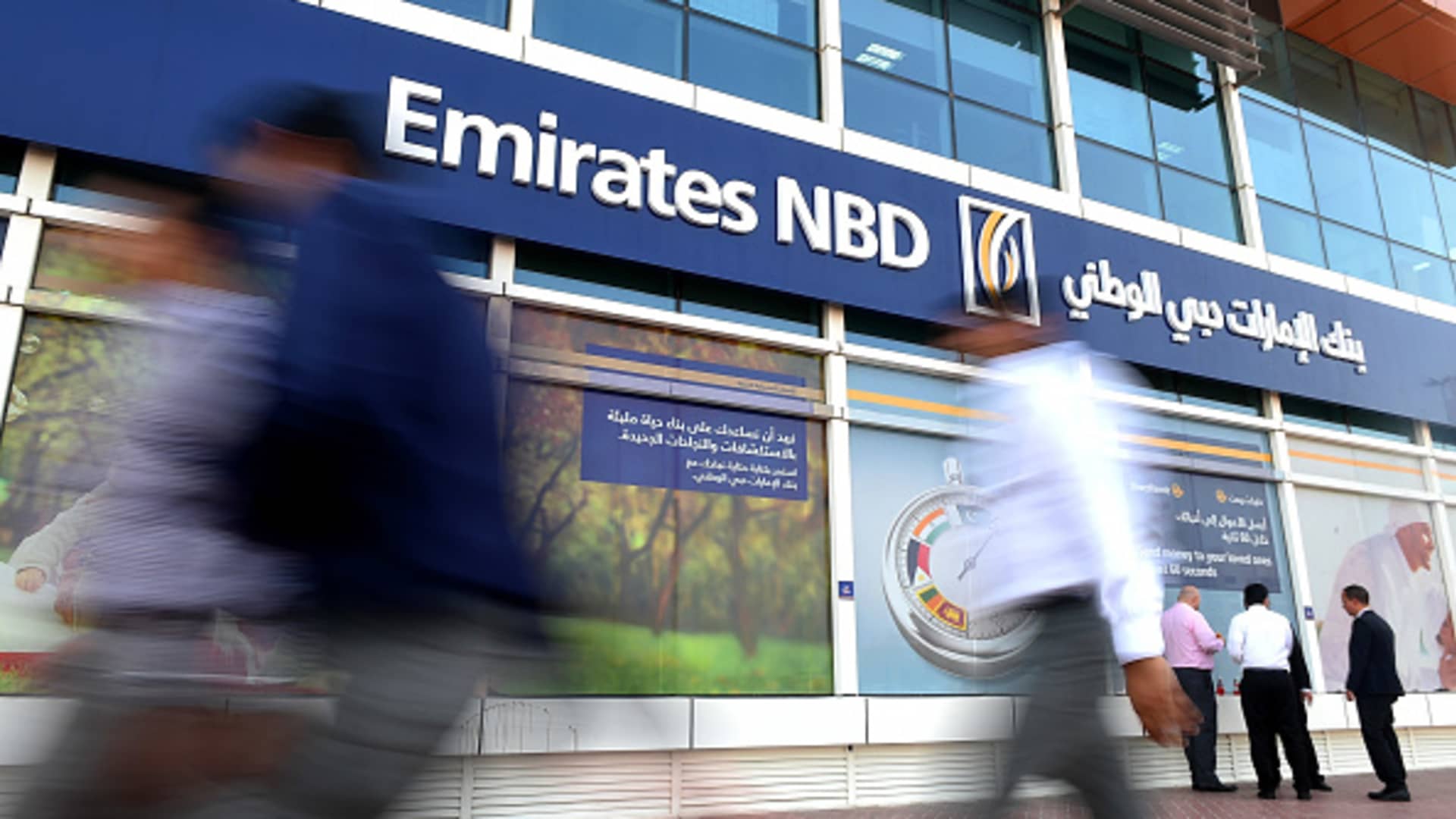Turkey’s skyrocketing inflation is flashing warning signals for Gulf banks

DUBAI, United Arab Emirates — Banks with exposure to Turkey have faced losses ever since the country’s currency began steeply depreciating in 2018; now, lenders in several oil-rich Gulf states in particular are set to take a hit in the next year because of their links to the country, according to a recent report by ratings agency Fitch.
Banks in the Gulf Cooperation Council — that’s Bahrain, Kuwait, Oman, Qatar, Saudi Arabia and the United Arab Emirates — with Turkish subsidiaries had to adopt “hyperinflation reporting” in the first half of 2022, Fitch wrote this week, as cumulative inflation in Turkey over the last three years surpassed a whopping 100%.
Fitch calculates that GCC banks with Turkish subsidiaries posted net losses of roughly $950 million in this year’s first half. Among the hardest hit were Emirates NBD — Dubai’s flagship bank — and Kuwait Finance House, the second-largest bank in Kuwait. Turkish exposure for Kuwait Finance House and Emirates NBD is 28% and 16% of their assets, respectively. Qatar National Bank was also among those affected.
“Fitch has always viewed GCC banks’ Turkish exposures as credit-negative,” the ratings firm wrote. “Turkish exposures are a risk for GCC banks’ capital positions due to currency translation losses from the lira depreciation.”
The lira has lost 26% of its value against the dollar year-to-date, making imports and the purchase of basic goods much more challenging for Turkey’s 84 million residents.
Why is Turkey’s currency falling?
This time five years ago, one dollar bought roughly 3.5 Turkish lira. Now, a dollar buys about 18 lira. The slide began as Turkey’s economy grew rapidly but its central bank declined to raise interest rates to cool rising inflation. That and things like a worsening current account deficit, shrinking foreign exchange reserves and rising energy costs — plus occasional spats with the U.S. that nearly resulted in sanctions on Turkey — pressured the currency further.
Economists overwhelmingly blame Turkish President Recep Tayyip Erdogan, who has vocally rejected the idea of raising rates and has called them the “mother of all evil,” and who investors blame for throttling the central bank’s independence.
If a central bank chief went against Erdogan’s policy of keeping rates low, they were eventually replaced; by the spring of 2021, Turkey’s central bank had seen four different governors in two years.
Erdogan’s government has instead devised alternative methods to try to prop up its currency and boost revenue, like selling its FX, imposing strict rules on lira loans, and improving relations with wealthy Gulf states to attract investment. The UAE and Qatar have both pledged billions of dollars of investment in Turkey’s economy.
Billions in losses
In mid-August, Turkey shocked markets by lowering its key interest rate by 100 basis points — from 14% to 13% — despite inflation at nearly 80%, a 24-year high. With little solution to the lira’s woes in sight, the banks with Turkish exposure are set to see more trouble, analysts say.
“We calculate that GCC banks’ aggregate currency translation losses through ‘other comprehensive income’ were USD6.3 billion in 2018–2021, mainly due to lira depreciation,” Fitch wrote, adding that the total net income of the banks’ Turkish subsidiaries, meanwhile, was just over half that amount at $3.3 billion.
“We expect currency losses to remain high until at least 2024 due to further lira depreciation,” the agency wrote.
Still, Fitch doesn’t see itself having to downgrade the viability ratings of the GCC banks that have Turkish subsidiaries, as it says “those banks have good loss-absorption capacity.”
It also doesn’t expect them to leave Turkey altogether, largely because there aren’t enough potential buyers, despite Turkish banks trading at half of their original book value.
“GCC banks would be willing and able to provide their Turkish subsidiaries with financial support, if needed, and this is reflected in the ratings of the subsidiaries,” Fitch wrote, adding that its outlook for their exposure remains credit negative in particular due to the growing risk of government intervention in Turkish banks.




